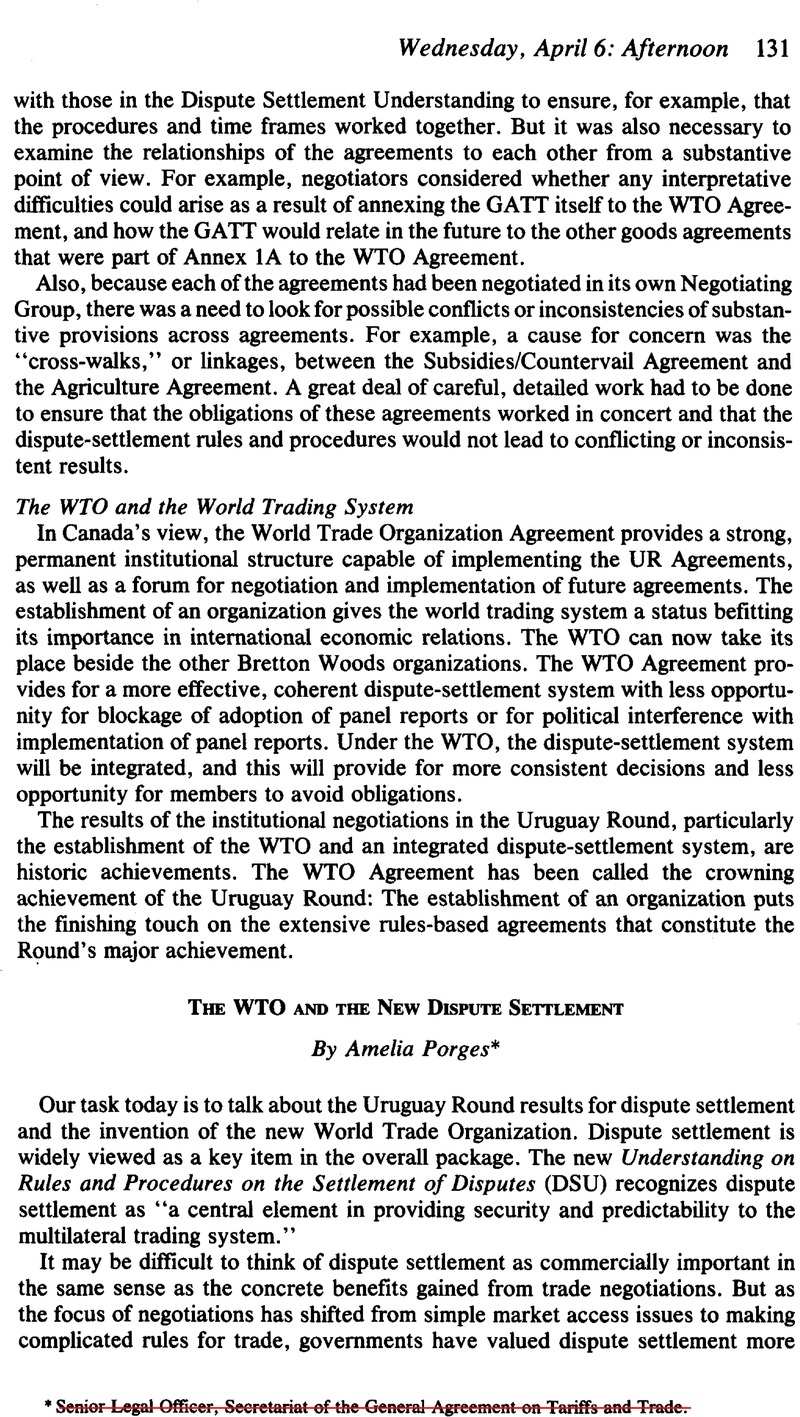No CrossRef data available.
Published online by Cambridge University Press: 28 February 2017

1 The contracting parties to the GATT acting jointly are referred to as the CONTRACTING PARTIES, in upper-case; the General Agreement does not otherwise establish any formal institutions.
2 The most recent recorded decision adopted by vote, other than decisions on waivers or accessions, was a Recommendation on Freedom of Contract in Transport Insurance adopted May 27, 1959, text at BISD 8S/26, adopted by a 22-7 vote with 4 abstentions, recorded in GATT document SR. 14/9, at 115. A complete discussion of GATT institutional practice appears in the ANALYTICAL INDEX GUIDE TO GATT LAW AND PRACTICE (6th ed., 1994) prepared by Amelia Porges.
3 See panel report on EEC—Subsidies and Payments Made to Processors and Producers of Oilseeds and Related Animal-Feed Proteins, adopted on 25 January 1990, GATT Doc. L/6627, BISD 37S/86, 131-32,¶ 154.
4 See note on Uruguay Round legal drafting process by Amelia Porges, 33 ILM 1 (1994)
5 See remarks by Robert Hudec to OECD Workshop April 25-26,1994 (stressing resource demands and suggesting creation of a permanent tribunal and GATT Advocate General’s office